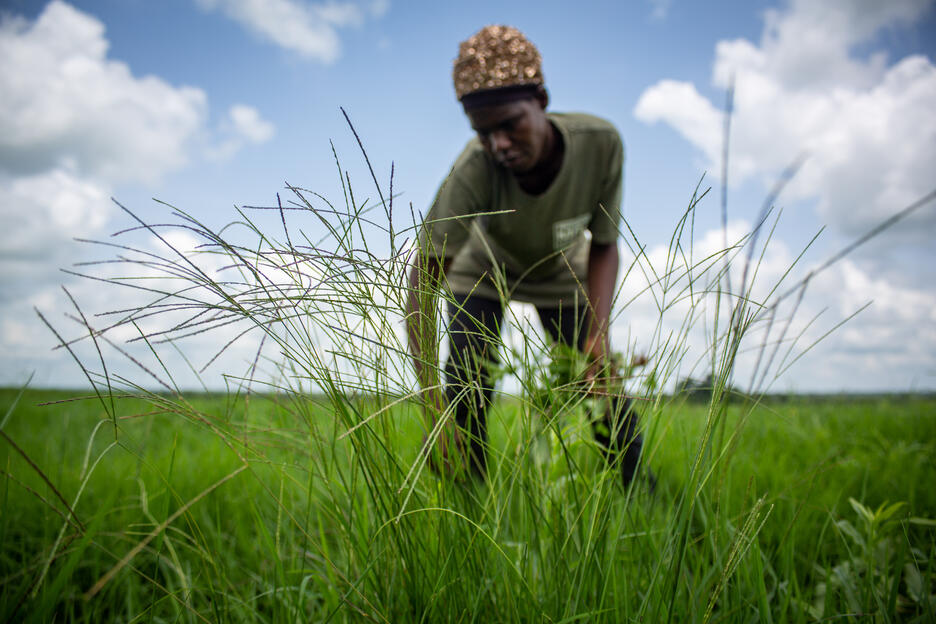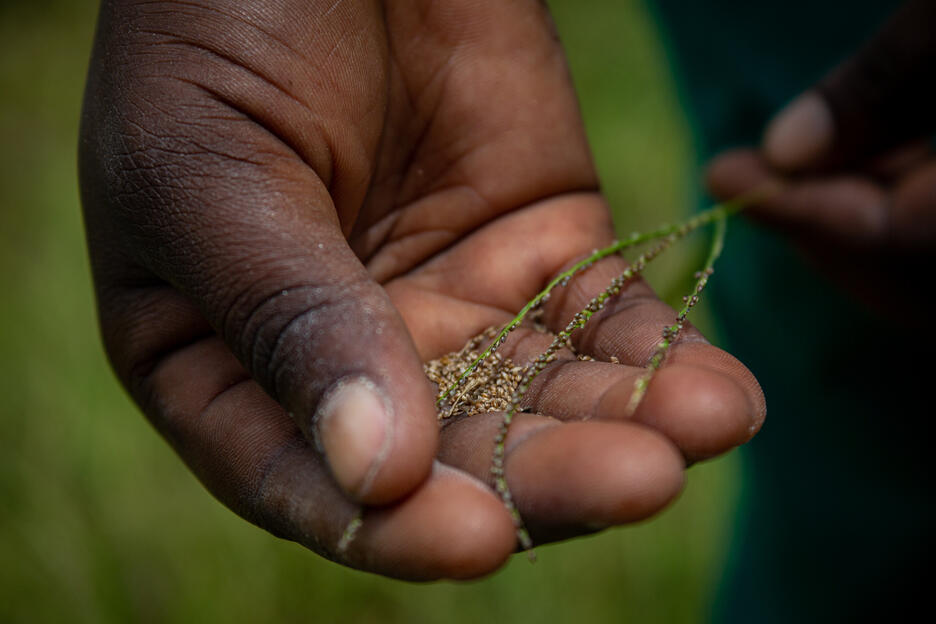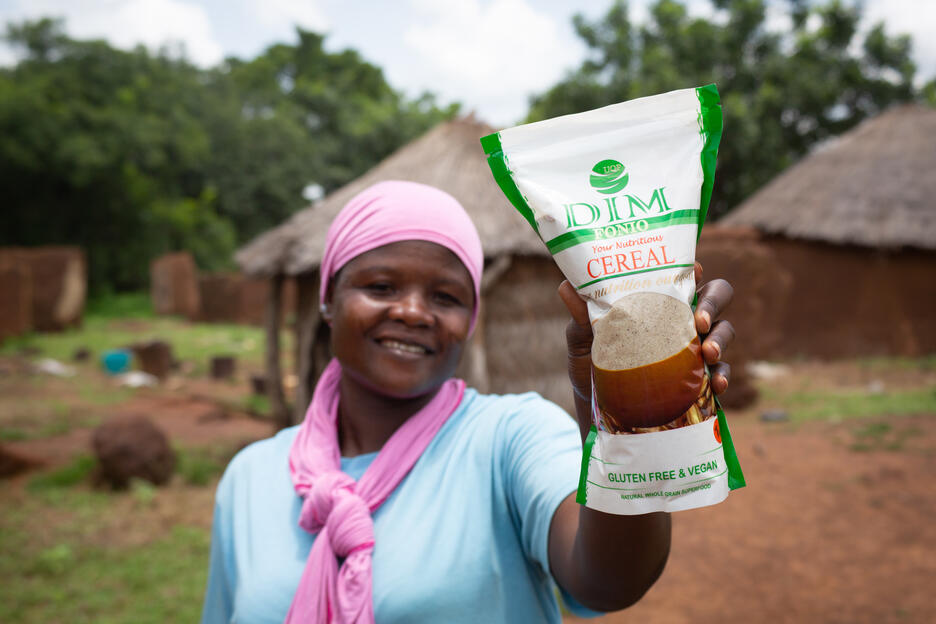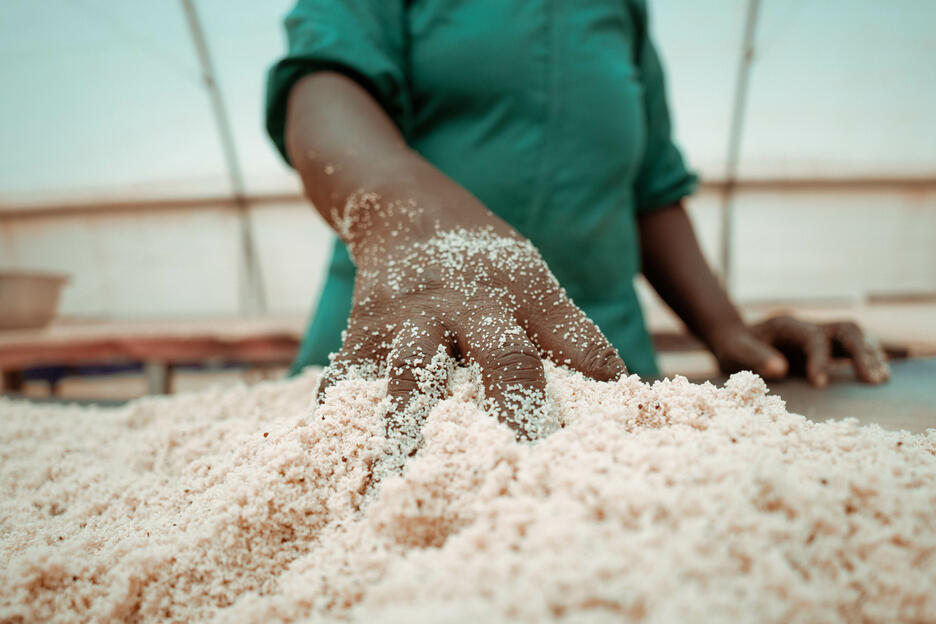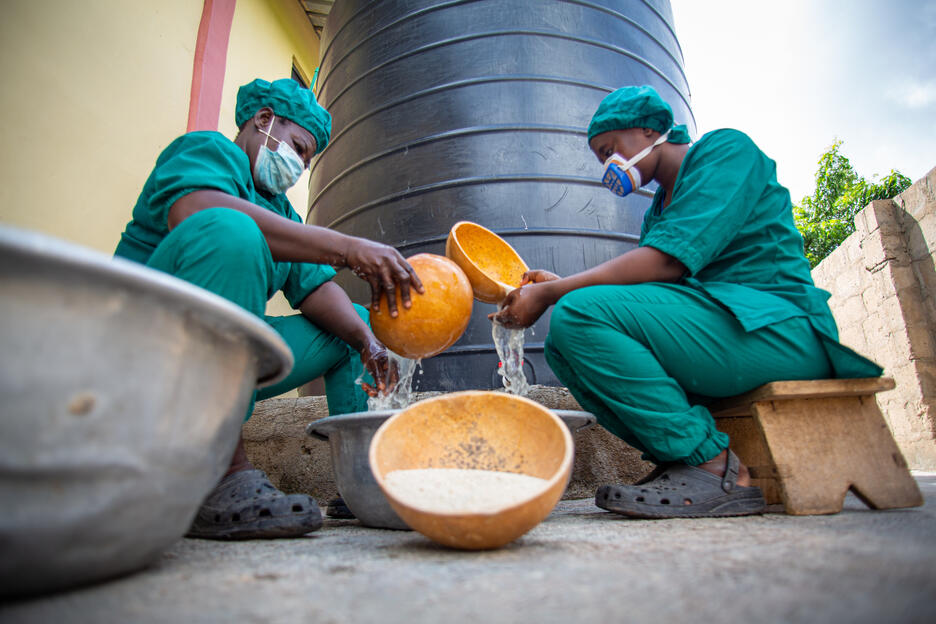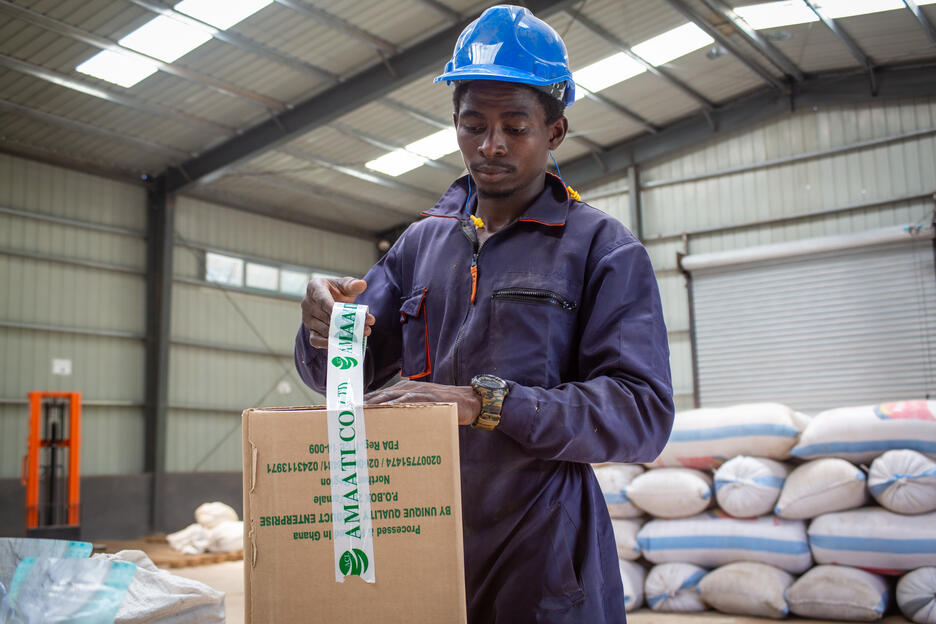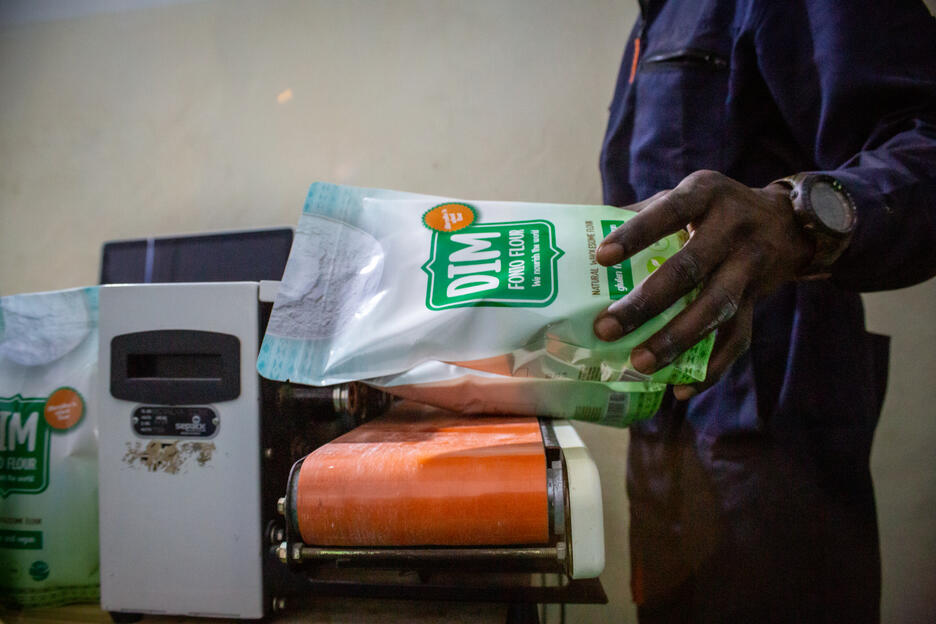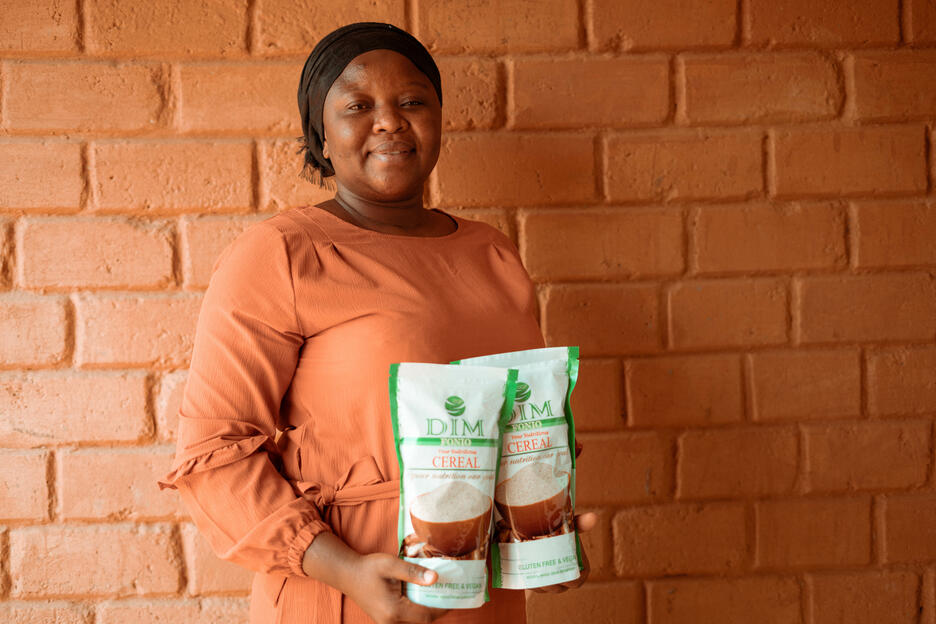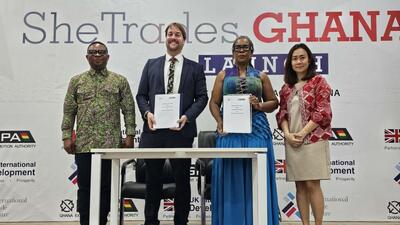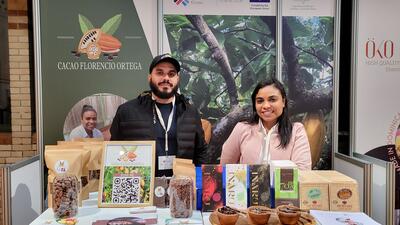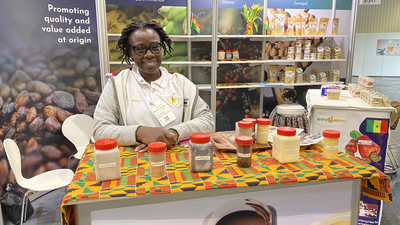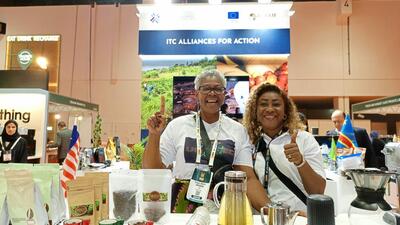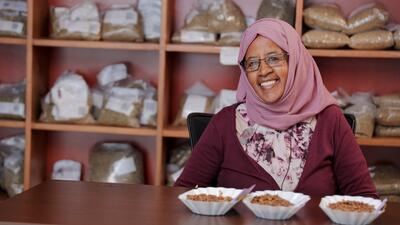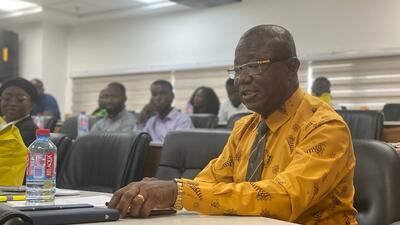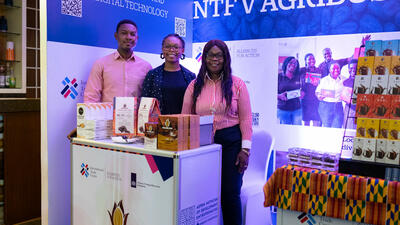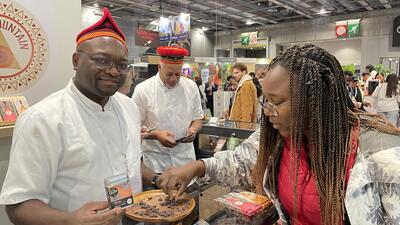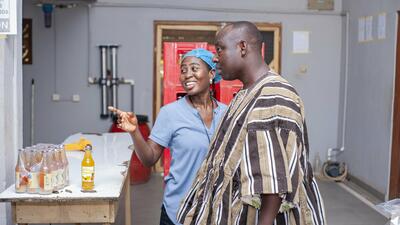
Land for women, fonio for people
How do you recultivate abandoned and degraded land, empower women’s rights and fight hunger at the same time?
Plant the crop fonio, a revolutionary idea by Salma Abdulai in Northern Ghana.
Salma Abdulai has a spark in her eyes when she talks about her life’s mission: changing the narrative of the women in her community in Yendi, Ghana. It is not an easy task, but attainable.
Salma grew up in the north of Ghana, in a typical farming household. With her father being a rice and maize farmer, Salma observed at an early age that women also work hard on the land to make ends meet.
“Women are supposed to only help their husbands or other men in farming. They don’t own land. Over 90% of the population is depending on agriculture. Imagine you don’t have access to land.”
Coming out of school, the young advocate formed a non-governmental organization (NGO) to convince men to give some land to the women. However, things were starting to get interesting when Salma started her master’s degree in agricultural economics.
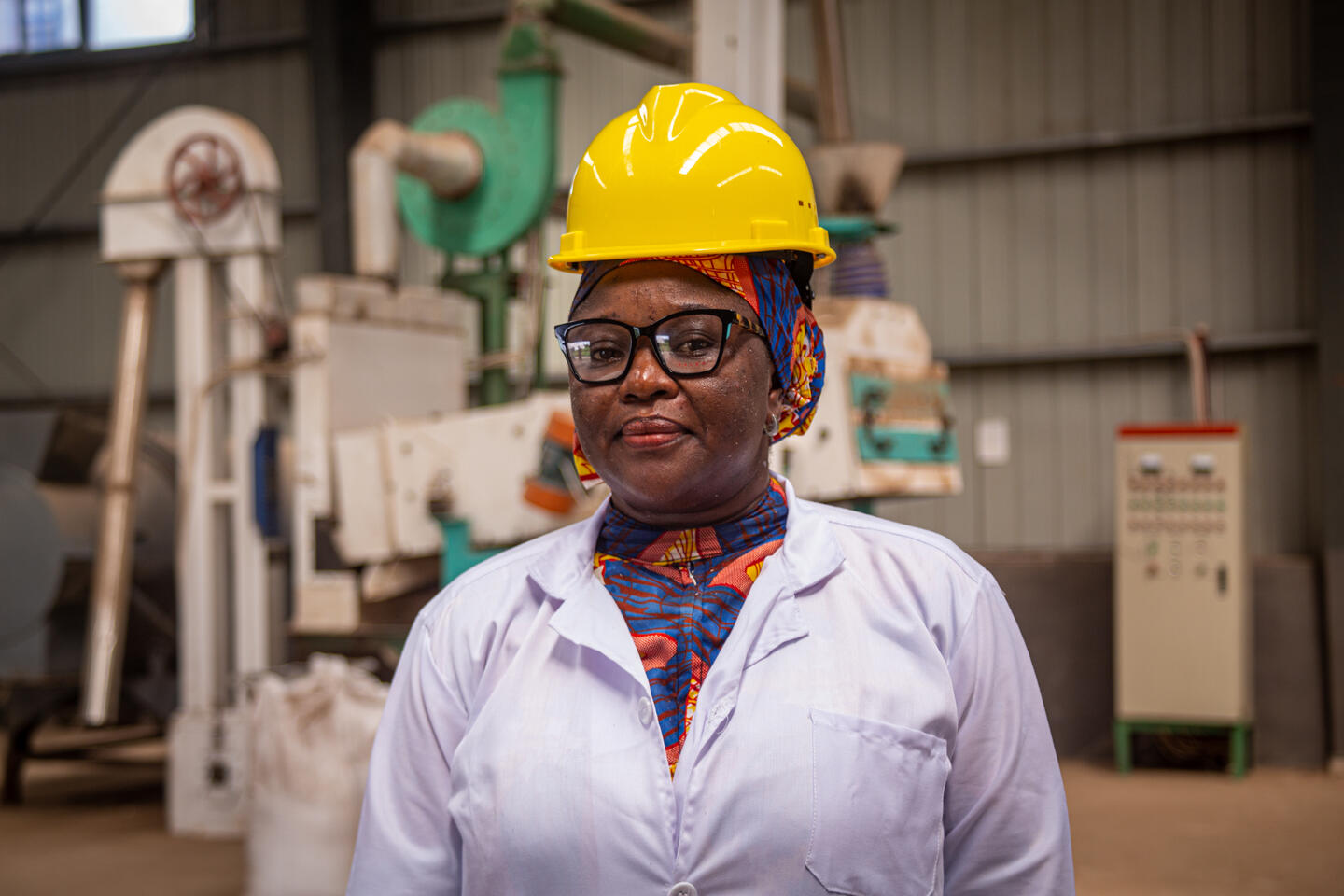
Over half of Ghana’s labour force is engaged in agriculture, with almost 40% of farm labour being women. Agriculture contributes to 54% of Ghana’s GDP, and accounts for over 40% of export earnings, while providing over 90% of the food needs of the country. Ghana’s agriculture is predominantly smallholder, traditional and rain-fed, especially in the north.
In recent years, with increasing droughts and extreme rain falls caused by climate change and human-driven deforestation, erosion washed away the land’s top soil, rendering it unfertile. This and excessive fertilizing practices have led to more and more abandoned land in Northern Ghana.
How does one turn this abandoned, unfertile land into arable soil? A Professor at the University gave Salma a winning idea.
“He told us about fonio – a crop that stops hunger thanks to its nutritious value. Its actual potential as a farming crop didn’t strike me until he said fonio grows pretty much everywhere.”
Fonio derives its nutrients from six metres below the soil’s surface, doesn’t need much nor long to grow (eight weeks until harvest) and even re-fertilizes land. The climate-resilient crop is high in fibre, iron, amino acids, protein, and malleable enough to be used for breakfast, lunch, and supper dishes.
Even though it is a gluten-free super food packed with nutrients that is crucial to Africa’s food security, Africa’s “ancient grain” has been only used for traditional occasions.
Salma set out to change that with a simple idea: Building sustainable communities through fonio farming that would nourish land, people, and society.
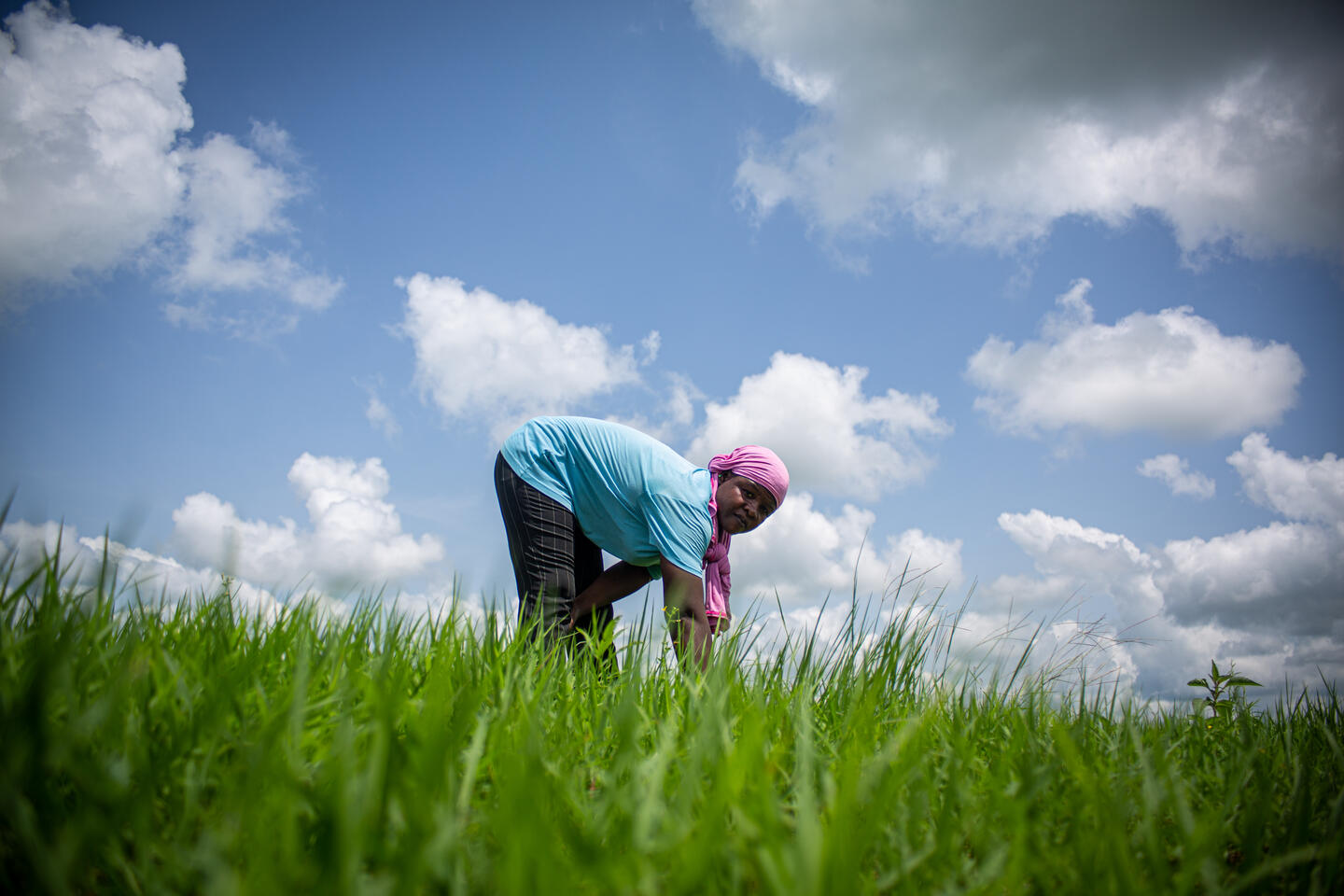
AMAATI was born in 2014, a Ghanaian social enterprise led by Salma and her husband. It started with ten landless women in 2014 and today works with over 5,500 smallholder farmers, of which almost 4,900 are women, extending over 80 communities in the three northern regions on 8,000 acreages of farmland.
To convince men to give over their exhausted land to women, Salma met with Chiefs and elders from the communities. As custodians of the land, they are the ones who can help women use it to cultivate fonio. This way, women are better positioned to support their husbands and families financially and can send their children to school.
Over time AMAATI has had to step in when husbands realized how successful their wives had become by selling fonio, a crop that pays more than others because of its organic certification. The company increasingly involves men in cultivation and processing to avoid any conflict due to cultural norms.
AMAATI only became successful by being organically certified.
Through customized coaching provided by the International Trade Centre (ITC), AMAATI identified the gaps to reach the EU/NOP Organic standard needed to find reliable buyers in European and US markets.
The coach trained the company on how to avoid cross-contamination from nearby farm fields, hygiene in its processing facility, and linked AMAATI to GIZ‘s Market Oriented Agriculture Project. The company received 80% financing towards auditing and certification costs.
With the organic certification, AMAATI is tapping into the $20 billion global gluten-free product market.
Since 2019, the company has been able to supply over 19 tonnes of fonio to a buyer in the Netherlands and five tonnes to another in the United States. These sales allow AMAATI to enjoy premium prices distributed to its 35 workers and the thousands of women producers.
And this is not all. The co-founders get the attention of other NGOs, Universities and development partners who recognize Fonio’s benefits. Women farmers have started their own processing and other companies are using AMAATI’s fonio grains to re-sell on the market under their own brand. Salma encourages this competition as this will increase interest and awareness among different target groups.
Video
In the next five years, AMAATI aims to support 15,000 rural households and 90 million people across the globe, producing 10 tonnes a day compared to the current 3.5 tonnes.
“Right now, we are working on the food safety certification FSSC 22000 with Nestlé.”
The most important goal for Salma however is the impact and influence she can have on the women in her communities through her work.
Amaati has benefited of the International Trade Centre’s Trade for Sustainable Development Programme. Through its GreenToCompete Hub Ghana, funded by Sweden, the company received coaching on compliance with organic standards and helped them obtain finance to pay for certification/audit against Organic standards.




